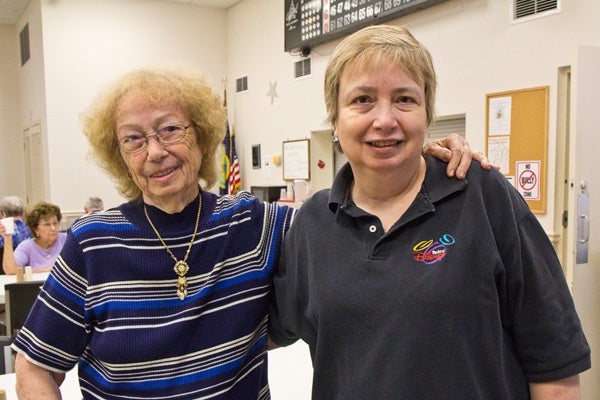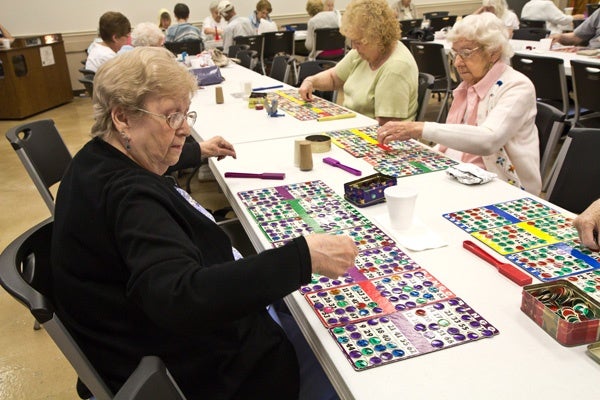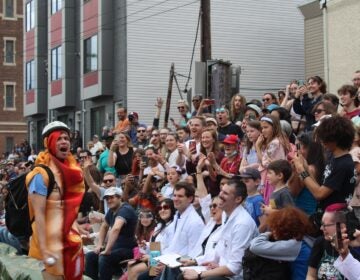Levittowners celebrate 60 years as community
Levittown, Pa., one of the first planned suburbs, has turned 60 years old.
Levittown, which spreads over four townships in Bucks County just north of Philadelphia, debuted in 1952, offering thousands of nearly identical, low-cost homes to war veterans and young families.
It’s now a harbinger of aging suburban problems.
When Pete Seeger sang “Little Boxes,” he wasn’t talking specifically about Levittown, but most people assumed he was:
“There’s a green one and a pink one And a blue one and a yellow one,And they’re all made out of ticky tackyAnd they all look just the same.”
More than 17,000 homes were built in Levittown, in just six different varieties. The song mocks the cookie-cutter style of the homes, as well as the people it produced.
A newer song represents the flip side of ticky-tacky sarcasm. Singer-songwriter Michael Francis Hughes fondly remembers growing up in Levittown in the 1960s. His song “I Know You (Levittown)” (from the album “Live Out Loud”) recently won a prize in the Pennsylvania Heritage Songwriting contest.
“We rode our bikes in all kinds of weather,down streets all named with the same first letter.Been a long time since I saw that girlwhen I left behind Red Cedar Hill.”
“We used to practice on the carports and all the neighborhood kids would gather around and have an audience into the street,” said Hughes, who started playing in bands as a teenager. “It was always fun. We walked to the end of the street to get to the school bus. In the wintertime it was, ‘Don’t lick the pole.’ All that good suburban stuff.”
Staid, suburban image ruffled
The popular image of Levittown as a safe and neighborly place was ruptured on a few occasions. In the 1950s, the first African-American family to move into the originally segregated development met racial hostility. In the 1970s, during the Arab oil embargo, angry Levittowners launched a two-day gas riot.
Early critics predicted the preplanned, non-organic Levittown development would quickly sour into a slum. Despite some blows, such as the closing of the Fairless Steel Works that provided jobs to so many of its residents, the community has held onto its middle-class status for 60 years.
Gloria Bertonis was just 21 years old when she and her husband put down $100 for a new house in 1953. She raised six kids in that tiny home.
“It was called a rancher in the advertisements, but it’s actually a Cape Cod. A little cottage,” she says.
“I was very happy as a wife and mother, but it was a very narrow life,” said Bertonis. “I didn’t have an identity. I was always somebody’s mom, somebody’s wife. I didn’t have a first name — I was Mrs. Warden in those days. I took back my maiden name after my divorce.”
Levittown is not always kind. In the 1970s, Bertonis’ husband abandoned the family, running away with a married woman who lived across the street.
Now, she says, it’s a great place to retire.
“As an 80-year-old, I have accessibility to everything I need,” said Bertonis. “I don’t have steps. I don’t have different levels, like some of the homes are split-levels. Everything is here that we need. It’s wonderful.”
Mature developments show their age
Bertonis may be aging gracefully in her Levittown home, but Levittown itself is not. As a prime example of a post-war suburb, the development was among the first to face the problems of suburban decay. It is no longer a growing community with growing incomes, but a static community requiring maintenance.
John McKelligott, who studies aging towns, says public policy favors new developments, not mature ones.
“If you look at things like infrastructure — building roads, building sewers, stuff like that — the biggest public investments … are subsidized in new, growing communities,” said McKelligott of the First Suburbs Project, which studies first-ring townships.
“If you have new development, that’s where the money is easiest found to address those needs. But in a Levittown or other older suburbs, things like sewer systems — which were an enormous investment — are beginning to wear out. They need to be renewed.
“The government resources that were available to spur that investment in the early days are being directed elsewhere,” he says.
McKelligott says the tax base of Levittown’s aging population has trouble supporting schools for kids as well as social services for seniors.
The 60th anniversary celebration is a fundraiser for a planned Levittown museum.
WHYY is your source for fact-based, in-depth journalism and information. As a nonprofit organization, we rely on financial support from readers like you. Please give today.
















